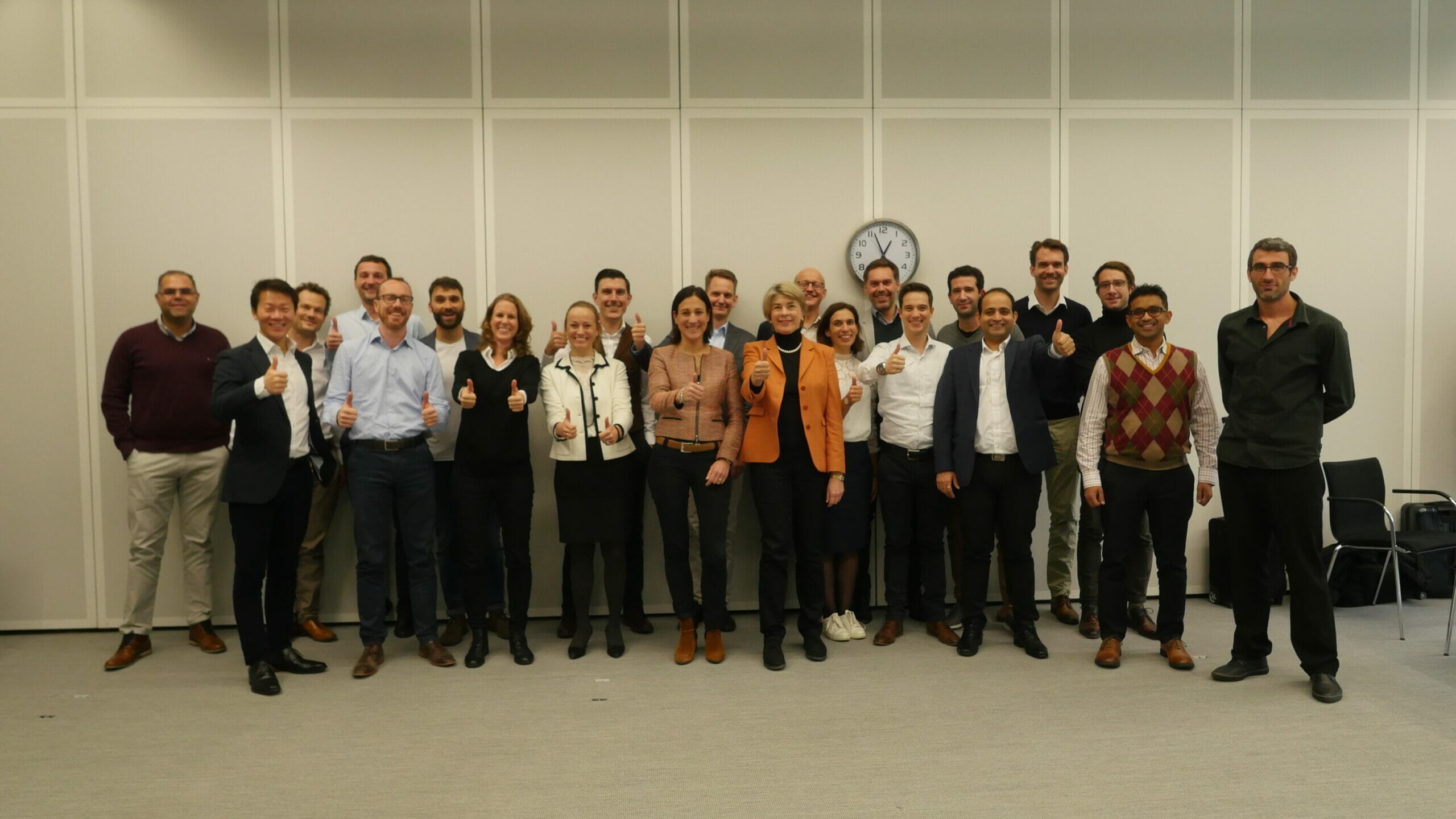The sustainability week took place on November 26th-30th and the course was co-designed and taught by Prof. Dr. Karolin Frankenberger (Academic Director, Executive MBA, Director Institute of Management and Strategy, School of Management, University of St.Gallen) and Barbara Kux (Sustainability Main Lecturer, Executive MBA). With their proven track record in pioneering, implementing and researching sustainability, they were able to shed light on the competitive advantage of a sustainable business strategy and encouraged students to have a positive impact – not only on their companies but also on the world.
The course offered a think-tank-style deliberation and presentations from different industry experts. The guest speakers were comprised of Christophe Boussemart, Sustainability Program Manager at Nespresso, Urs Jaisli, Chief Compliance Officer and Head of Corporate Sustainability at Roche, Christian Leitz, Head of Corporate Responsibility Management at UBS, and Federico Merlo, Managing Director of Member Relations at the World Business Council for Sustainable Development (WBCSD). The learning experience was capped by a sustainability project pitch relating to the students’ own organizations.
“Sustainability is inherently about the three P’s: People, Planet and Profit,” stated Barbara Kux. “Organizations must focus on all three goals, and not only on profit maximization. With this course, our main aim was to make students enthusiastic about sustainability, as well as to provide them with strategic tools, and discuss strategies from a range of industries.”
“I learned a lot about new sectors and how sustainability actually applies in different ways in energy, in finance, in investing, or in pharmaceuticals,” Owen Bethell (IEMBA Cohort 6) summarized at the end of the course, “and I learned to think about sustainability in a holistic sense.”
Prof. Dr. Karolin Frankenberger explained: “Placing a premium on sustainability ties in with the integrated, holistic thinking of the St. Gallen management model. It is deeply ingrained in the whole Executive MBA structure, which is nicely reflected in the Financial Times Global Ranking 2018 where we were ranked third in the sustainability and CSR category.” She concluded: “In this week, our students have learned that it’s their turn as future leaders to translate their insight into impactful change for the better.”
About the author(s)

Relevant executive education
Newsletter
Get the latest articles directly to your inbox.
Share article
More articles
The Future of Work and the Central Role of Diversity & Inclusion
Leadership in Transition: Five Trends of Modern Leadership
The future of work – also relevant for the legal market?
Why inclusive leadership matters for every generation
Do young lawyers need leadership, too? Classification according to generations – slightly arbitrary, but useful

